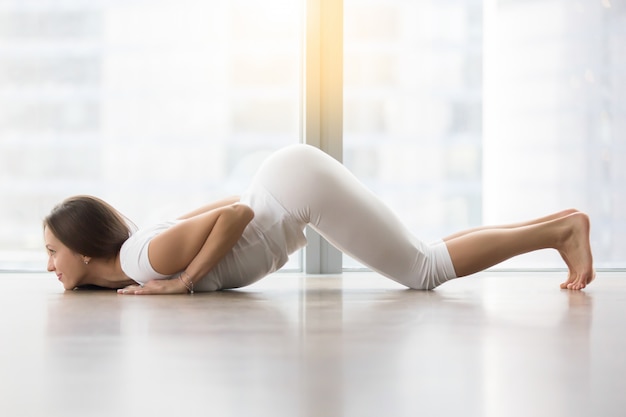
A yoga body isn’t just about flexibility; yoga can also boost memory, heart, and bone health, says Anna Magee.
Brits are increasingly into yoga, spending around £790 million a year on it. While some new yoga trends seem odd—think rage yoga or dog yoga—science is backing up its real benefits. Researchers at UCLA found that a three-month yoga and meditation program was more effective than memory exercises at preventing age-related brain decline. Another study showed yoga could improve sleep in breast cancer survivors.
When Lucy Edge, a 53-year-old former advertising executive, fell into depression, she turned to yoga instead of anti-depressants. She took a six-month break to study yoga in India and returned feeling happier and more content. Lucy has written three books about yoga and started Yoga Meds on her website Yogaclicks.com, listing over 300 clinical trials on yoga’s benefits.
If you’re used to crossword puzzles and Sudoku to keep your mind sharp, it might be time to try yoga. UCLA’s research showed that yoga and meditation can significantly improve memory, reduce depression and anxiety, and increase resilience to stress in adults over 55. This suggests we should investigate yoga and meditation further for heart and brain health.
You don’t need to spend hours on headstands to benefit. The study involved just one hour of Kundalini yoga per week, incorporating gentle movements, breathing exercises, and some chanting. Participants also completed 20 minutes daily of Kirtan Kriya meditation, which involves chanting, hand movements, and visualization.
The evidence suggests that gentle yoga could be great for your heart too. A review published in the European Journal of Preventative Cardiology showed yoga might reduce heart disease risk as effectively as brisk walking. Yoga helps lower stress, which is a major contributor to heart disease, and can improve blood pressure, cholesterol, and weight.
To get started, you can try Charlotte Watts’ stress-reducing yoga series or Restorative yoga, where postures are supported and held for extended periods. This style of yoga is great for reducing stress and giving your nervous system a break.
Yoga is also good for back pain. Sarah Shone, a physiotherapist and yoga teacher, developed yoga classes for back pain relief that were so effective they became part of the Primary Care Trust’s rehabilitation program. A significant 87% of participants reported less pain.
Yoga can also help prevent incontinence by strengthening pelvic floor muscles and is weight-bearing, which can improve bone density. If you’re new to yoga, mention any health issues to your teacher and start with gentle styles like Hatha or Iyengar. For specific conditions, ask your doctor about subsidized yoga programs.
Choosing the right yoga mat can enhance your practice. Consider where you’ll use it, portability, your height, and mat thickness to protect your joints. Healthista recommends the Elephant Cork Yoga mat from Valka Yoga, which is eco-friendly, durable, and good for hot yoga due to its grip when wet and antimicrobial properties. It provides the right balance of cushioning for comfort.
Valka Yoga also offers a matching yoga block to help with difficult poses. Although heavier than foam blocks, cork blocks offer better stability and grip.
If you’re not flexible, no worries—yoga can still benefit you. Try Yin or Restorative yoga using supportive props or Vinyasa Flow for an energizing sequence. Iyengar yoga focuses on alignment, using props to perfect postures, and Anusara yoga combines alignment with flowing movements to upbeat music. Yoga Therapy can help with specific injuries or illnesses.
No matter your experience level, good yoga equipment can enhance your practice and ensure you’re comfortable while reaping the many health benefits.